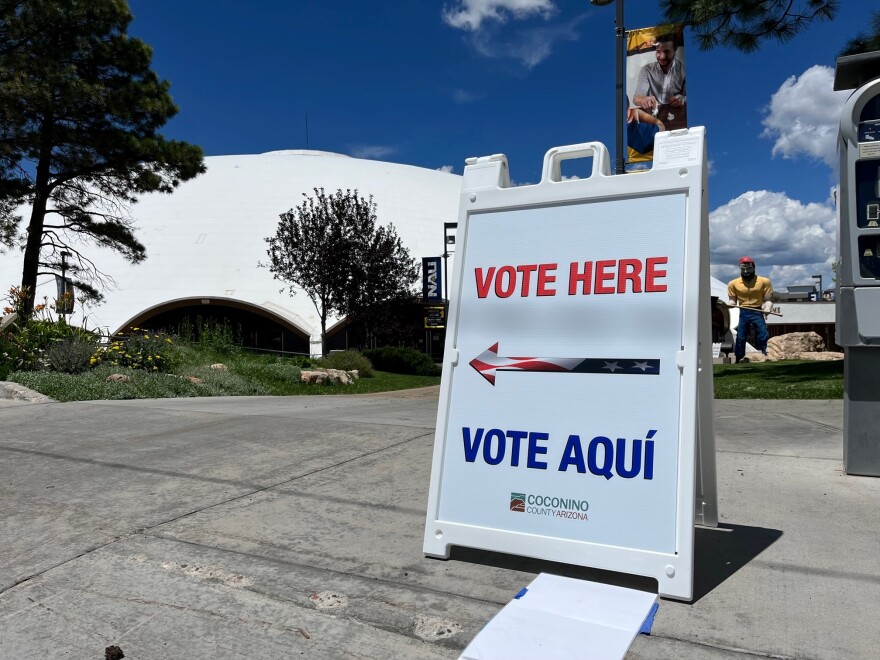Votes are still being counted throughout Arizona, but initial results have yielded few major surprises in national and statewide races along with more than a dozen ballot propositions. To help sort it all out, KNAU’s Ryan Heinsius spoke with Northern Arizona University professor emeritus of political science Fred Solop.
Ryan Heinsius: What are your thoughts today? Did this election generally turn out like you thought it would, at least in Arizona?
Fred Solop: It’s a difficult question because the results are mixed. If we’re just focusing on Arizona, a lot of what we thought in Arizona has come to pass. We thought Trump would win in Arizona. We thought that Ruben Gallego would win—now, that’s not a definitive win yet, we don’t have all the ballots counted yet in Arizona. But we thought Proposition 139 around abortion would do really well. So, in some ways it’s a reaffirming election in Arizona. Now, there are some changes that are interesting to think about. Many of the propositions put on the ballot by the Legislature were rejected by the voters and I think things like minimum wage were quite interesting. Immigration, of course, seems to be on the way to passing, immigration controls, and that was something the Legislature wanted. But much of what the Legislature put on the ballot was rejected by the public. So, not earth-shattering results in Arizona itself.
RH: How do you interpret the impact of the Indigenous vote in the state? Did it have the impact that was seen in 2020 when Native voters were really key to President Joe Biden’s victory?
FS: The Indigenous vote is important when it’s a very close election, as it was four years ago. That vote was key to pushing Biden forward. This time around the vote, the election is not as close in Arizona. The Indigenous vote matters but it wasn’t forceful in electing Donald Trump. In fact, we do see that Jonathan Nez, former president of the Navajo Nation, and he seems to be hovering around 40-45% of the vote—again we don’t have final results yet. He’s likely not to win the district. The Indigenous vote was not able to get Jonathan Nez into office. So it’s mixed results, but important when there’s a close election and the Democrats need that extra edge, not as important this time around.
RH: There were bomb threats in Navajo County and also voting machine and printed ballot shortages in Apache County that disrupted voting yesterday. Do you think this affected the outcome in any way?
FS: Honestly, I think that those are important to note, and we saw this elsewhere in the country as well. We saw problems occurring in Georgia for instance. I don’t think the extent of the problems changes the outcomes of the race. But it’s important to make note of these situations and to respond to them in the future. We have a long way to go to improve our elections. Overall though, I would say we have a very sound election system and a secure election system. So, it’s easy to focus on the anomalies but I don’t think that changes the outcome of the vote.
RH: After this election, is Arizona less purple than it was perhaps four years ago? Does this represent a shift either way or is it more solidifying Arizona’s swing-state status?
FS: We’re definitely a swing state and we’ll continue to be a swing state for some quite time. Demographics suggest that. We will be purple and continue to be purple. So, is the state changing? Yes. It’s continuing to change. The demographics are continuing to change. We’re going down the path of having a larger Latino population in Arizona. We have a younger population in Arizona. We have a growing population in Arizona. And that affects policy along many dimensions. What we’re seeing in the presidential race, that’s one slice, that’s one sliver of what’s taken place demographically in this state and I wouldn’t rely on the electoral outcome to define the direction Arizona is going.



